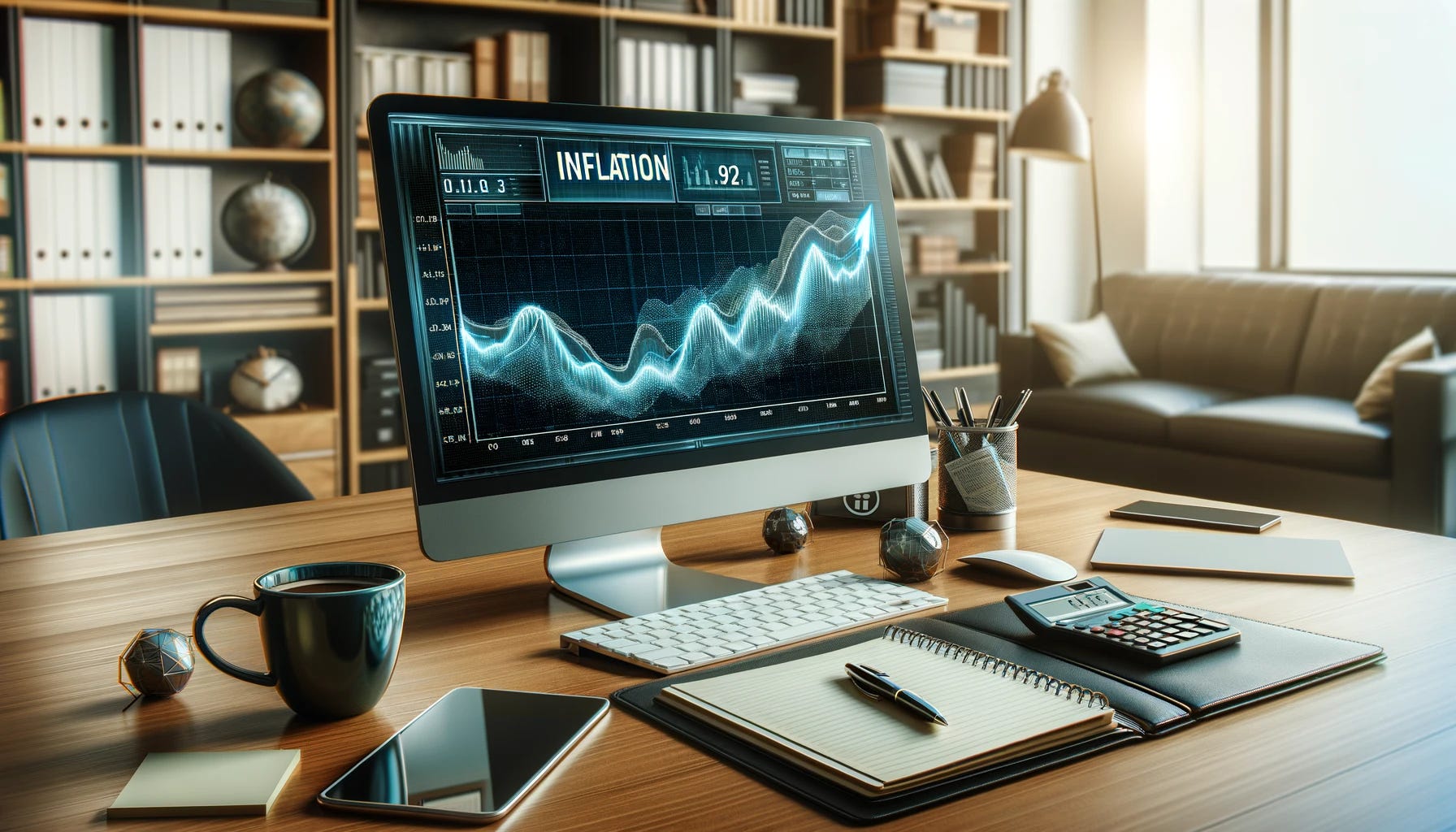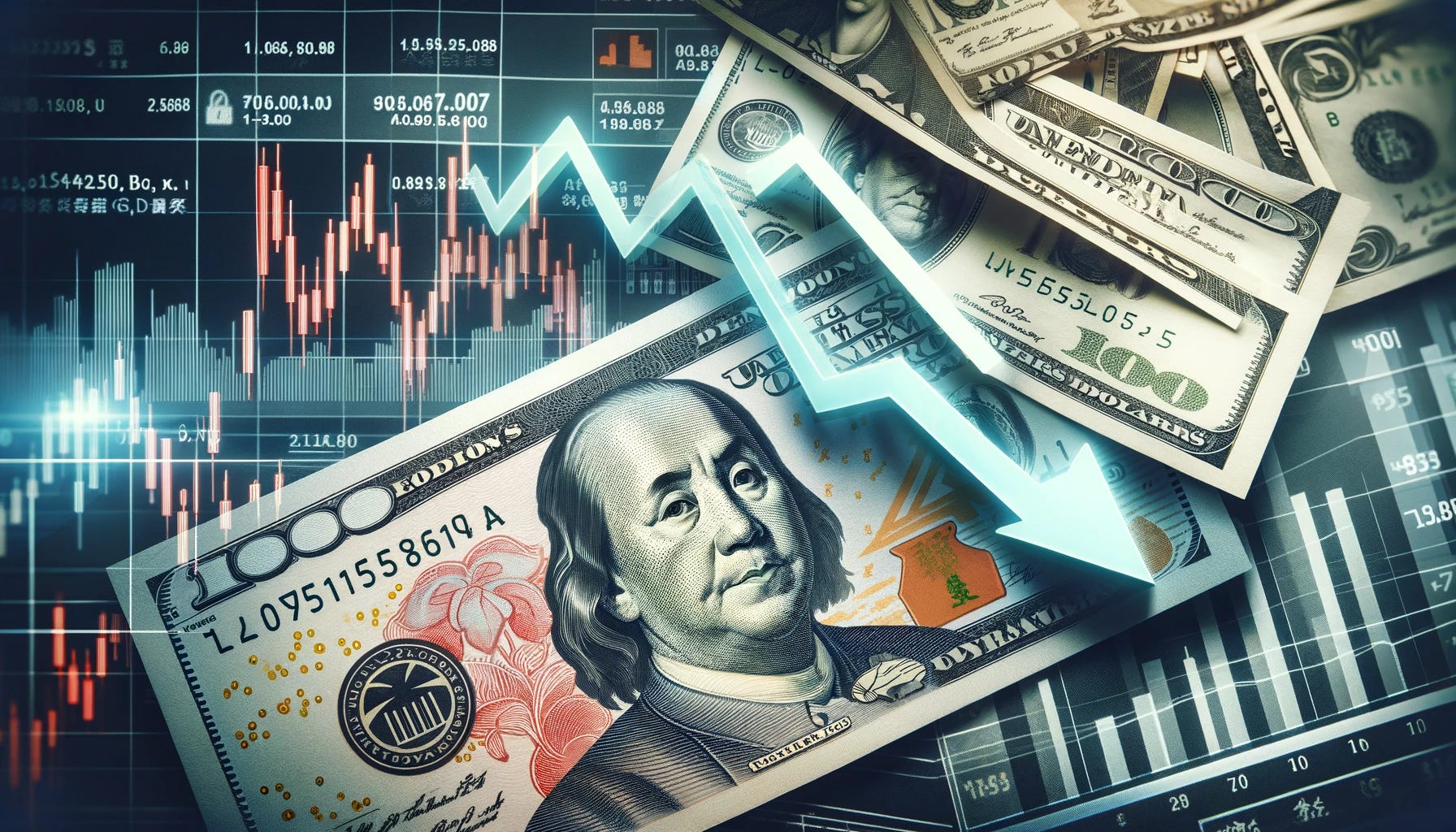US-China Trade Wars: Good for Americans?Market Sizzle: Inflation slows, AI revolution, Golden Goose IPO, Renminbi impact.Hate chatbots? You’re not alone. Remember when talking to a real person wasn’t a luxury? Companies are still ironing out the kinks in their digital helpers. Maybe they just need a bit more personality—or maybe we all just miss a good old-fashioned conversation. Speaking of interesting conversations, let's dive into today's market news! Inflation Squeeze EasesThe Fed’s favorite measure of US inflation slowed in April. The core personal consumption expenditures (PCE) price index, which excludes food and energy, rose just 0.2%. This was the smallest increase this year. Consumer spending also dropped by 0.1%, mainly in goods and services. Wages grew more slowly, affecting demand. The April report gave the Fed hope for lower inflation but showed a slow economic start for the year. Treasury yields fell, S&P 500 futures went up, and the dollar weakened. Traders expect the Fed to cut rates soon. The Fed watches services inflation, which rose 0.3% in April. Household spending showed signs of slowing. Goods spending fell 0.4%, led by drops in gasoline and car purchases. Despite steady job and income growth, household demand is cooling. Incomes rose 0.3%, but real disposable income fell 0.1%. The saving rate stayed at 3.6%, the lowest since late 2022. AI's Big Breakthrough When?A year and a half after ChatGPT, people ask: when will AI change lives? Big Tech's developer conferences this May hoped to answer that. Since ChatGPT, focus shifted to making generative AI usable for everyone. This involves creating stronger language models, spending on new chips, and building big data centers. Microsoft announced AI-enabled PCs under the brand Copilot+. These PCs can handle AI tasks without remote data centers. This challenges Apple's MacBooks, sparking an AI race in computing. But consumers still wonder: when will AI truly help me? So far, AI mostly answers questions and helps write text. Tech companies aim for digital assistants that predict needs and act for users. Google and OpenAI promise big things. But, AI needs to understand new situations and talk naturally, like humans do. Google’s new models claim progress, but challenges remain. OpenAI's GPT-4o shows promise in conversational AI. But turning demos into real-world tools is hard. The AI breakthrough may take time. Shabby Chic IPOGolden Goose, famous for its pre-scuffed sneakers, is going public. The Italian brand, loved by celebs like Taylor Swift, plans to raise €100 million ($108 million) in Milan next month. Their $500 sneakers have a "vintage finish" that fans adore. Golden Goose hopes investors will buy into its unique style, even as luxury brands face slowing sales. Gucci and LVMH have seen weaker demand recently. CEO Silvio Campara says the IPO is a "natural next step" for the company, aiming to grow and reduce debt. The company, founded in Venice in 2000, plans to float 25% of its shares. They expect revenues to reach €1 billion by 2029. Golden Goose reported €587 million in revenues last year, with a 25.4% profit margin. The brand’s popularity has grown, thanks to its unique, "distressed" sneakers and strong leadership. I'll update the "Why This Matters" section to include the effect on US Treasuries. Will China Devalue Currency?Investors want China’s central bank to let the renminbi weaken. They believe the gap with US interest rates will drive people to sell Chinese currency. This year, China kept the renminbi's value steady, within a narrow range. But recently, it traded 2% below this range, showing selling pressure. The 10-year US Treasury yield is 4.57%, while China’s is 2.3%. Higher yields attract more capital. Some traders predict a big renminbi drop, like in 2015. Back then, China’s devaluation caused market turmoil. China prefers stability now. President Xi Jinping wants a strong renminbi to boost the country's financial power. If the renminbi falls, it might spark tension with the US by making Chinese goods cheaper. Other Asian currencies have also dropped against the dollar. Analysts are unsure where the renminbi will go next. Some think it will stay weak due to the interest rate gap. The People’s Bank of China (PBoC) wants to keep rates low to help the economy. Despite pressure, the PBoC hasn't changed its plan. It might slowly adjust the renminbi's value to ease market pressure. Why This Matters: A weaker Chinese currency (renminbi) makes Chinese goods cheaper in the US. This can hurt American businesses because it's harder for them to compete with low prices. It might also cause more arguments between the US and China about trade. Quick Sizzles:
That’s today’s Market Sizzle; Good Trading, Good Life! You're currently a free subscriber to Josh Belanger. For the full experience, upgrade your subscription. |





Tidak ada komentar:
Posting Komentar